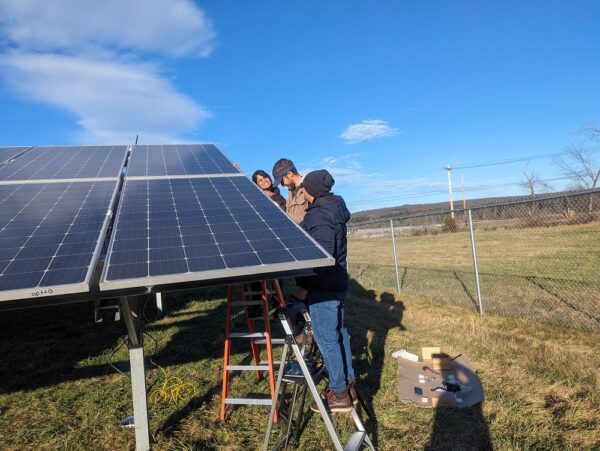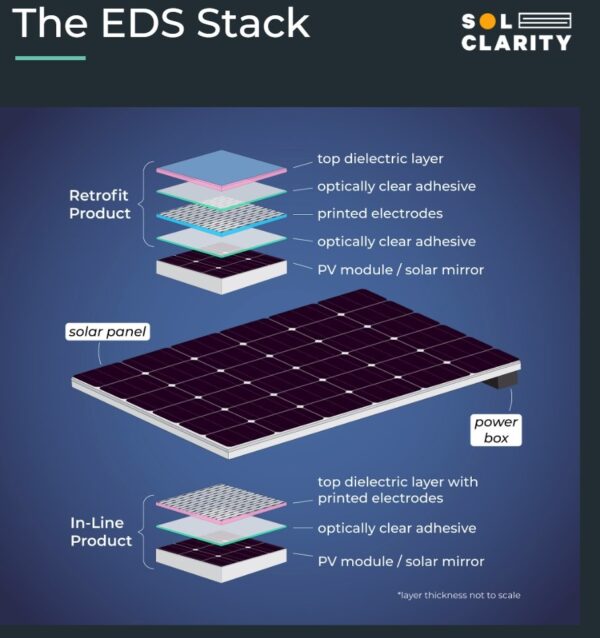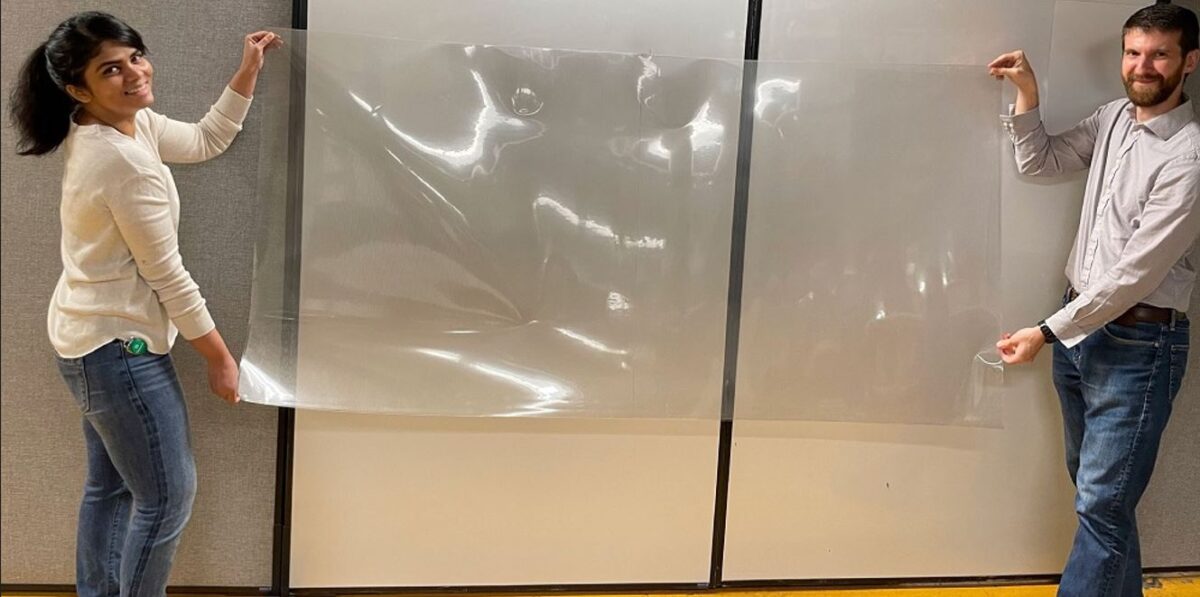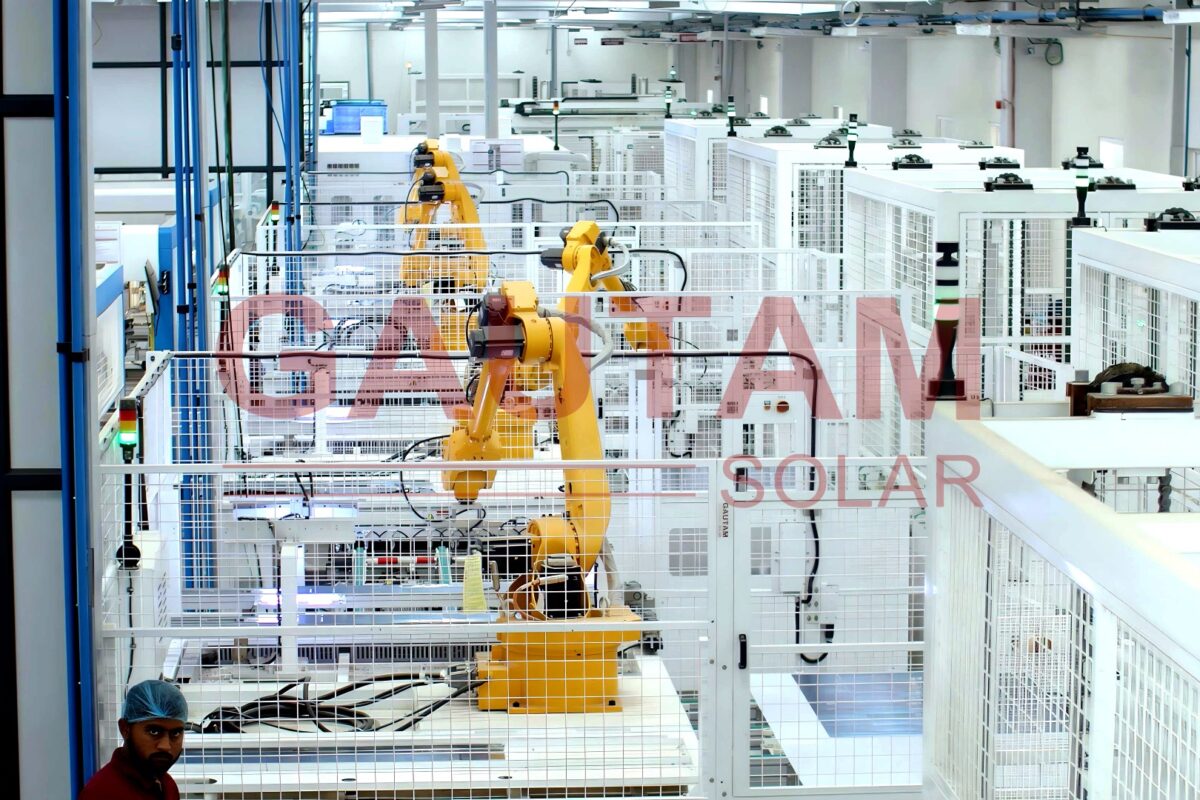Sol Clarity is developing an electrodynamic screen (EDS), which charges dust particles with a static charge and then uses an electromagnetic wave to sweep them off the solar panels.
The company is currently seeking investment partners to help scale its operations and is testing the technology on a community solar project in the northeastern United States.
In the video above, the dust can be seen suddenly falling off the panels when the electromagnetic wave is engaged.

The US company has tested its EDS material at a community solar facility owned by developer Nexamp. More recent tests were conducted at a facility in Chile, and next year, it plans to implement the technology at a power plant owned by Engie in California.
The startup has received support from two state-funded groups, Mass Ventures and the Massachusetts Clean Energy Center (MassCEC).

At the Nexamp site, Sol Clarity installed 11 full-scale solar panels equipped with EDS systems, complete with power boxes and intricate circuitry.
According to a 2018 paper, Sol Clarity expects the EDS system to operate for one to two minutes per day. The paper estimates that approximately 500 solar modules could be cleaned each day with just 1 kWh of electricity.
The product, which can be installed in the factory or retrofitted in the field, consists of either two or four layers, plus a power box. The factory-installed system includes an optically clear adhesive layer, plus a dielectric layer that contains the printed electrodes. The retrofit version adds two additional layers that separate the printed electrodes from the top dielectric layer.
Another EDS company, CleanFizz, has conducted tests in Saudi Arabia, showing that its product can remove more than 95% of soiling losses from solar panels. It recently announced the closure of a $1 million investment round at the end of 2023 and is now seeking $50 million to build a 300 MW manufacturing facility in Switzerland.
This content is protected by copyright and may not be reused. If you want to cooperate with us and would like to reuse some of our content, please contact: editors@pv-magazine.com.








1 comment
By submitting this form you agree to pv magazine using your data for the purposes of publishing your comment.
Your personal data will only be disclosed or otherwise transmitted to third parties for the purposes of spam filtering or if this is necessary for technical maintenance of the website. Any other transfer to third parties will not take place unless this is justified on the basis of applicable data protection regulations or if pv magazine is legally obliged to do so.
You may revoke this consent at any time with effect for the future, in which case your personal data will be deleted immediately. Otherwise, your data will be deleted if pv magazine has processed your request or the purpose of data storage is fulfilled.
Further information on data privacy can be found in our Data Protection Policy.